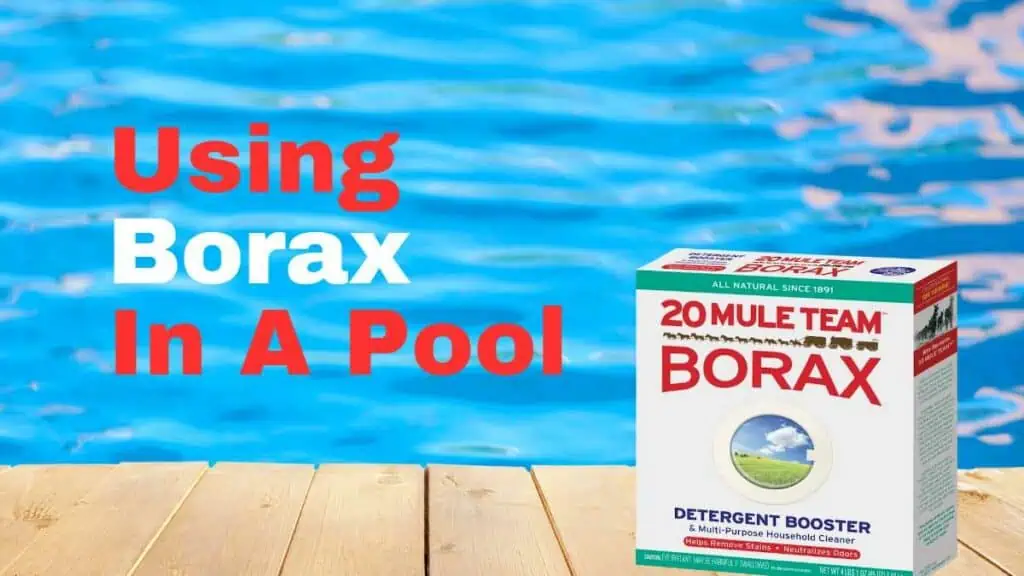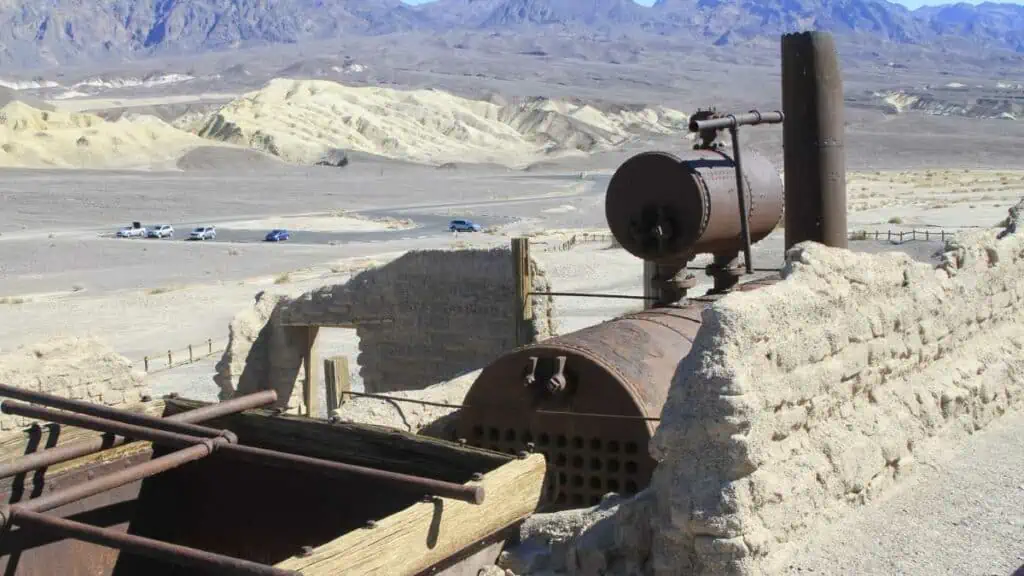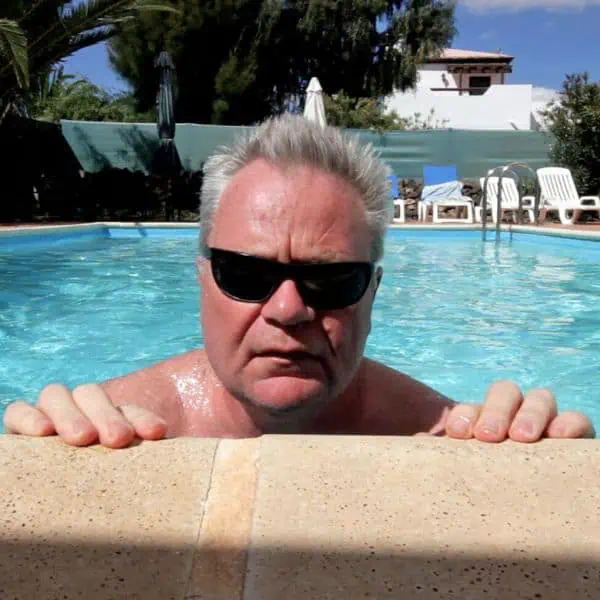As a pool owner, you know how important it is to maintain the proper pH balance, alkalinity, and sanitizer levels in your pool.
One product that can help with this is borax, also known as sodium tetraborate or disodium tetraborate. Borax is a chemical compound that can be used as a pH buffer and pH increaser in pool water, and it can also help to inhibit the growth of algae and other bacteria.
Borax is a mild alkaline mineral salt that is often used as a household cleaning agent, insecticide, and water softener. When added to pool water, it can help stabilize the pH balance and total alkalinity, which can help prevent corrosion, mineral buildup, and other problems.
Borax is also a natural sanitizer that can help to keep your pool water clean and clear, and it can be used in conjunction with chlorine or other sanitizers to help maintain a healthy pool environment.


What is Borax?
What exactly is Borax? In this section, we’ll explore borax’s chemical composition and properties.
Chemical Composition
Borax, also known as sodium borate, sodium tetraborate, and disodium tetraborate, is a naturally occurring mineral composed of sodium, boron, oxygen, and water.
Its chemical formula is Na₂[B₄O₅(OH)₄]·8H₂O, which means that each molecule of borax contains two sodium atoms, four boron atoms, seven oxygen atoms, and ten water molecules.
Properties
Borax is a white, odorless powder that is soluble in water. It has a pH of around 9, which makes it slightly alkaline. Here are some of the properties that make borax useful for pool maintenance:
- pH buffer: Borax can help stabilize the pH of your pool water, which is important for keeping the water clear and preventing damage to your pool equipment.
- Algaecide: Borax can help prevent the growth of algae in your pool by inhibiting certain enzymes involved in its life cycle.
- Calcium carbonate inhibitor: Borax can help prevent the formation of calcium carbonate, which can cause cloudy water and scale buildup on pool surfaces.
In addition to its uses in pool maintenance, borax is also used in a variety of other applications, such as laundry detergent, insecticide, and as a flux in metallurgy.
Borax is a versatile and useful compound that can help keep your pool water clear and healthy.

Borax For Pool Maintenance
Borax, also known as sodium tetraborate or sodium borate, is a versatile chemical compound that can be used to control various aspects of pool water chemistry.
In this section, we will explore what does borax do for a pool and the different ways borax can be used in pool maintenance.
Alkalinity Control
Total alkalinity is a measure of the water’s ability to resist changes in pH. Low alkalinity can cause pH levels to fluctuate rapidly, leading to corrosion of pool equipment and irritation of swimmers’ eyes and skin.
Borax can be used to increase alkalinity levels without affecting pH, making it a useful tool in pool maintenance.
pH Buffer
pH balance is another critical aspect of pool water chemistry. The ideal pH range for a swimming pool is between 7.2 and 7.8. Low pH can lead to corrosion of pool equipment, while high pH can cause scaling and cloudy water. Borax can act as a pH buffer, helping to stabilize pH levels and prevent fluctuations.
Chlorine Stabilization
Chlorine is a common sanitizer used in swimming pools to kill bacteria and other harmful organisms. However, chlorine can be unstable and easily degraded by sunlight, heat, and other factors. Borax can help stabilize chlorine levels, ensuring the sanitizer remains effective for longer.
Sanitizer Levels
Maintaining proper sanitizer levels is crucial to prevent the growth of harmful bacteria and other microorganisms. Borax can help maintain optimal sanitizer levels by stabilizing pH and alkalinity, allowing the sanitizer to work more efficiently.
Cleaning and Maintenance
Borax can also be used as a cleaning product to remove mineral buildup and stains from pool surfaces. It can be added directly to the pool water or used to scrub pool walls and floors. Additionally, borax can help prevent scale buildup in pool equipment, reducing the need for costly repairs.
Borax is a versatile chemical compound that can be used in various aspects of pool maintenance. By controlling alkalinity, stabilizing pH and chlorine levels, and acting as a cleaning agent, borax can help ensure a safe and healthy swimming environment.
Use a pool calculator to determine the appropriate amount of borax needed based on your pool’s size and current water chemistry.
Benefits of Using Borax in Your Pool
Using borax is a great option if you’re looking for an effective and affordable way to maintain your pool. Here are some of the key benefits of using borax in your pool:
Cost-Effective
Borax is a cost-effective alternative to other chemicals used in pool care. It is much cheaper than muriatic acid and other cleaning products. By using borax, you can save money while still keeping your pool clean and well-maintained.
20 Mule Team Borax is a popular choice and is available on Amazon.
Effective pH Buffer
Borax is a great pH buffer, which helps stabilize your pool’s pH balance. If the pH level in your pool is too acidic, borax can help to increase the pH level to a more balanced level. This helps to protect your pool from corrosion and other damage caused by acidic water.
Environmentally Friendly
Borax is an environmentally friendly choice for pool care. It is a natural mineral mined from the earth, and it doesn’t contain harmful chemicals or additives. By using borax in your pool, you can help to minimize your impact on the environment.
Minimizes Mold and Mildew Growth
Borax is also effective at minimizing the growth of mold and mildew in your pool. This is because it helps to control the alkalinity levels in your pool. When the alkalinity is balanced, it creates an environment that is less hospitable to mold and mildew growth.
Water Softener
Borax is a natural water softener that can help reduce the hardness of your pool water. This is important because hard water can cause damage to your pool’s plumbing and other equipment. Using borax can help keep your pool water soft and protect it from damage.
How to Use Borax in Your Pool
If you’re a pool owner, you know how important it is to maintain the proper pH balance, alkalinity, and sanitizer levels in your pool.
One way to do this is by using borax, a chemical compound that can help regulate the pH balance in your pool water. Here’s how to use borax in your pool:
How Much Borax to Add to Pool
Before adding borax to your pool, you need to calculate the amount needed to achieve the desired pH level.
A rough rule of thumb is to use 40 ounces of Borax to raise the pH by 0.5 for every 10,000 gallons of pool water. Obviously, you need to adjust this amount depending on the pH and volume of your pool.
If you don’t know the volume of your pool this calculator can help:
Pool Volume Calculator
Please enter your pool shape and dimensions:
How to Add Borax to Pool
Once you know how much borax to add, it’s time to add it to your pool. Here’s how:
- Make sure your pool’s pump and filter are running.
- Put on safety gloves to protect your skin.
- Measure out the required amount of borax.
- Mix the borax in a bucket of water (you may need to do this a number of times depending on how much you need to add as you can only dissolve so much in the water at a time)
- Walk around the edge of the pool pouring the borax solution as you go. This will help distribute the borax evenly.
- How long to wait after adding borax to pool? Wait at least 4 hours before testing your pH levels again.
It’s important to note that borax can take up to 24 hours to dissolve in your pool water fully. So, don’t be alarmed if you don’t see an immediate change in your pH levels.
In addition to regulating pH levels, borax can also help prevent the growth of algae in your pool water. It’s a safe and effective alternative to other pool cleaning products that can be harmful to the environment.
Also read: BBB Pool Method: The Ultimate Guide to Clear and Sparkling Pool Water which details how to use Borax as well as bleach and baking soda to maintain a pool.
Using borax in your pool can help maintain the proper pH balance and prevent the growth of algae. By following the steps outlined above, you can easily and safely use borax in your pool care routine.
Borax in Pool FAQs
What is the purpose of using borax in a swimming pool?
Borax is used in swimming pools to increase the water’s pH level and act as a buffer, preventing significant pH fluctuations. It also helps control algae growth.
Is borax safe for use in swimming pools?
Borax is safe for use in swimming pools when used in the recommended amounts. It is a natural mineral compound that has a low toxicity level.
How much borax should I add to my swimming pool?
To raise the pH by 0.1, add approximately 4 ounces of borax per 1,000 gallons of water. Be sure to test the water before and after the addition to ensure proper pH levels.
How do I apply borax to my swimming pool?
Pre-dissolve the required amount of borax in a bucket of warm water, then evenly distribute the solution around the perimeter of your pool while the pool’s circulation system is running.
Can I use borax as a sanitizer in my swimming pool?
Borax is not a sanitizer and should not be used as a substitute for chlorine, bromine, or other pool sanitizers. Its primary function is to stabilize pH levels and control algae growth.







Leave a Reply